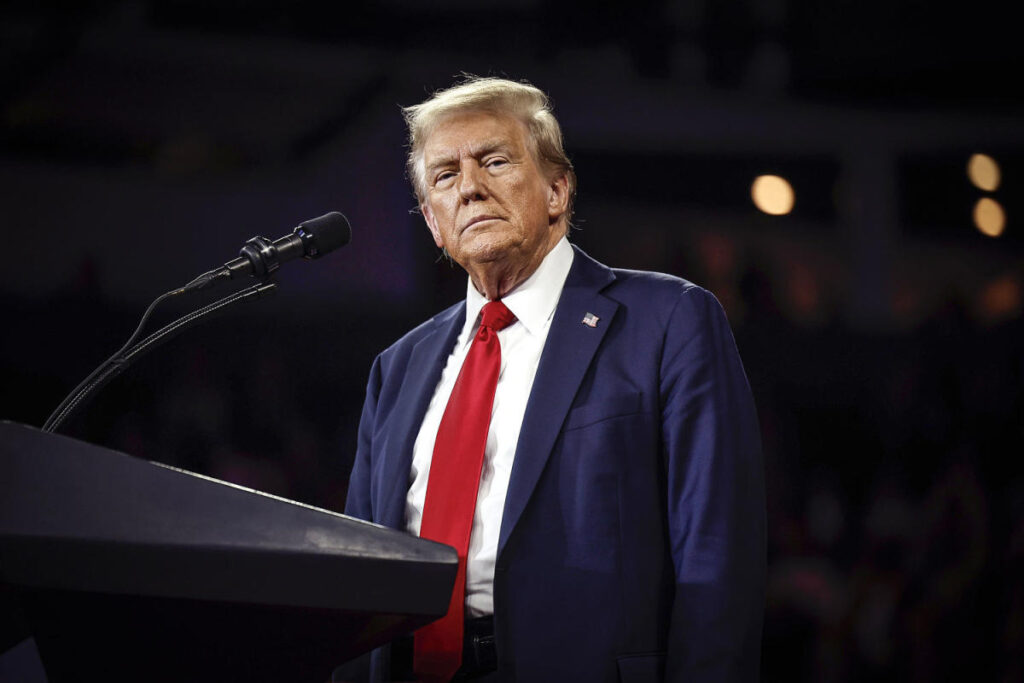In a recent ruling, U.S. District Court Judge Tanya Chutkan approved the release of redacted evidence related to Donald Trump’s federal election case while granting the former president seven days to attempt to block this disclosure. The decision comes in the context of an ongoing federal election case overseen by Judge Chutkan, amidst a backdrop of early voting for the upcoming presidential election. Prosecutors had advocated for the public release of the appendix accompanying a 165-page brief unsealed earlier this month, while Trump’s legal team vehemently opposed any further disclosures, claiming that the blanket objections they raised were based on meritless grounds.
Trump’s attorneys argued against the release of any part of the redacted appendix, emphasizing the need for a stay on any decision, which would allow them time to explore legal options without facing premature disclosure of sensitive information. They have been actively seeking various delays in court proceedings related to the indictments stemming from efforts to overturn the 2020 election results. As the legal maneuvers unfold, the legal team’s immediate silence post-ruling leaves the question of potential further action regarding the disclosure unresolved.
The special counsel’s office, led by Jack Smith, has contended in their briefs that Trump had “resorted to crimes” to maintain his position following the 2020 election loss, arguing that his conduct did not align with official presidential actions as claimed by his defense team. This assertion has been countered by repeated accusations from Trump’s lawyers, denouncing the prosecution as politically motivated. In response, the special counsel’s office has reiterated its commitment to upholding the law without regard to partisan politics, emphasizing their adherence to lawful conduct throughout the prosecution process.
Adding a layer of complexity to Trump’s legal plight, proceedings in his related Georgia indictment are anticipated to reach trial no earlier than November, following the Supreme Court’s recent ruling that affirmed some immunity for Trump concerning acts conducted in office. The ruling has significantly influenced the timeline of various cases associated with the former president, including a hush money case stemming from the 2016 election where he was convicted of falsifying business records. The New York judge overseeing this case has also accommodated Trump’s requests to postpone sentencing until after Election Day, demonstrating a judicial willingness to consider Trump’s electoral concerns even amidst serious legal challenges.
As the legal landscape unfolds, the absence of a set trial date amplifies the atmosphere of uncertainty surrounding Trump’s various court battles, particularly as the election season intensifies. With Trump’s team strategically opting to delay legal proceedings, there is significant public and media interest in how these simultaneous challenges might affect his campaign and the broader political environment. While the legal strategies of Trump and his counsel indicate a focus on stalling proceedings, the implications of timely disclosures in the election case could have a significant impact in the lead-up to the election.
In conclusion, the tension between legal processes and electoral dynamics creates a complex backdrop for both Trump’s defense and the ongoing legal scrutiny he faces. With pivotal decisions pending, the reactions from both Trump’s team and the special counsel will continue to shape the narrative as the election approaches. Legal experts and political analysts alike are closely monitoring these developments, recognizing that the outcomes of these cases could profoundly influence not only Trump’s political future but also the political landscape as a whole.

